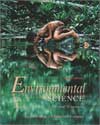 |
1 |  | 
What are the major points of argument in favor of increasing reliance on nuclear power? |
|  | |
 |
 |
2 |  | 
Identify the two fossil fuels most damaging to the environment, and summarize their effects. |
|  | |
 |
 |
3 |  | 
The two general approaches for long-term management of highly radioactive wastes is to put them in retrievable long-term storage sites or to dispose of them in permanent burial sites. Describe one drawback to each approach. |
|  | |
 |
 |
4 |  | 
a. Explain the basic difference between fusion and fission as ways to obtain nuclear power.
b. Compare the environmental impacts of these two methods of obtaining power (assuming fusion was commercially operable.) |
|  | |
 |
 |
5 |  | 
A position in opposition to nuclear power is perceived by many to be a pro-environment position. But is it? How would you rebut the following argument from the skeptic: "Much of our electricity in this country comes from coal-fired power plants. This creates much environmental damage. We need to shift from coal to nuclear power fast for some very important environmental reasons. Here are the environmental costs of coal-fired power plants:
• They are a major producer of SO2, a principal cause of acid rain.
• They produce large amounts of CO2, a main contributor to global warming.
• Workers continue to be killed and injured in coal mine accidents.
• Black lung disease continues to be a major cause of lung cancer and other debilitating diseases of miners’ respiratory systems.
• Acid drainage off coal mines' waste piles damages thousands of miles of streams.
• Open-pit mining may be better for workers' health, but large areas of surface lands are destroyed to do it.
You say you're worried about potential nuclear accidents, but look at the devastation coal causes humans and the environment every week of every year, year after year. You anti-nuclear people are basing your opposition on emotion, not the facts." |
|  | |
 |
 |
6 |  | 
There is considerable national debate over appropriate national energy policy. These significant differences of opinion arise largely because there are a number of diverse stakeholders in energy decisions: oil, coal, and nuclear companies and associated retailers and investors profiting from those industries. How might the national energy policy be changed to be consistent with environmental, economic, and social needs, despite the vested interests of stakeholders in keeping the status quo? |
|  | |
 |
 |
7 |  | 
What is your response to the skeptic who says, "The scariest energy discussion of all is that we might actually perfect nuclear fusion and then have a nearly unlimited energy supply. What scares me is that we use energy to manipulate the environment. Unlimited energy means unlimited environmental manipulation. But technological manipulation of the environment is what has gotten us into the environmental mess we are in." |
|  | |
 |
 |
8 |  | 
A discussion of oil shales and tar sands has led some writers to ask, "Should we declare some western states sacrificial areas so we can have cheap gasoline?"
a. Look carefully at the language used in that question. How do you think the question writers would answer the question?
b. What reasons do you suppose the question writers have for feeling the way they do about shale oil extraction?
c. Rewrite the question as it might have been written by an advocate of shale oil extraction. |
|  | |
 |
 |
9 |  | 
The United States has huge coal reserves.
a. Write an argument in support of using these reserves as an issue affecting our national security.
b. Write an argument against using our coal reserves as an issue affecting our national security. |
|  | |
 |
 |
10 |  | 
Environmentalists and the oil industry are locked in an intense battle over the fate of oil and wildlife in the Arctic National Wildlife Refuge. Summarize the arguments of each side. |
|  | |
 |
 |
11 |  | 
Visit the Current Global Environmental Issues map on this Web site. Under Pollution, choose the piece Heat wave threatens nuclear power plants. How can summer warmth threaten a nuclear power plant? |
|  | |
 |



 2003 McGraw-Hill Higher Education
2003 McGraw-Hill Higher Education